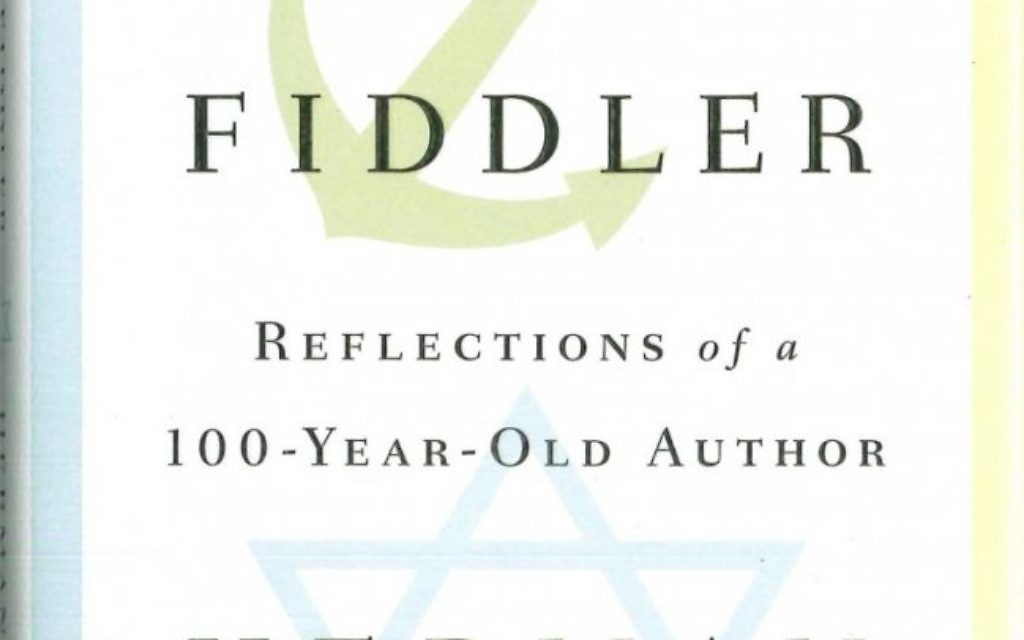Wouk’s Greatness Lurks in the Background
If we asked all AJT readers to list the great Jewish-American male writers of the 20th century, some names would appear almost every time: Philip Roth; Saul Bellow; Bernard Malamud; Isaac Bashevis Singer; Chaim Potok; Isaac Asimov; E.L. Doctorow; David Mamet.
Herman Wouk deserves to be in the discussion with all of them, but I suspect he would be overlooked most of the time, even though his novels also thrived as plays, movies, and perhaps the last two epic TV miniseries, “Winds of War” and “War and Remembrance.”
“The Caine Mutiny” is simultaneously in the conversation for best World War II movie, best U.S. Navy movie, best courtroom drama, best fictional Jewish lawyer and best Humphrey Bogart performance. The writer deserves credit for bringing those elements together, but he seems to be overlooked if not forgotten.
Get The AJT Newsletter by email and never miss our top stories Free Sign Up
“Sailor and Fiddler,” the 100-year-old Wouk’s autobiography, reveals the author’s ability to melt into the background as the key to his genius. I’m not sure any great writer ever worked so hard to produce work that seemed so effortless.
Wouk spent years writing books such as “Marjorie Morningstar,” “Youngblood Hawke,” and his historical Israel novels, “The Hope” and “The Glory.” He had some books in progress for more than a decade as he started and stopped some epic sagas and let himself be distracted by other projects. But his books don’t drive home the point on every page that you are reading the work of a great writer, a best seller, a Pulitzer winner.
His autobiography — well under 200 pages for 100 years that saw him rubbing shoulders with celebrities and earning the cover of Time magazine in addition to racking up book sales and TV ratings — is a remarkable work of humility.
He doesn’t think the details of his life are too interesting. He doesn’t have axes to grind. He doesn’t have skeletons to clear out of the closet or gossip to spread. No childhood traumas or lost loves.
The one great tragedy he and his wife of more than 60 years experienced was the drowning of their 4-year-old first child, but Wouk shares the incident, makes clear he has never gotten over it, then moves on without wallowing in guilt or self-pity.
His book is in two halves. The sailor part deals with his life through his Navy service and the start of his writing career. The fiddler part turns more to his Judaism, his love of Israel, and his great purpose in life, to write the epic story of the Holocaust within the context of all of World War II.
Wouk accomplishes in this smooth volume exactly what I think he intended, offering a glimpse at the writing process and a taste of his faith and Zionism. He delivers an entertaining memoir without making it too much about himself but in the process reveals a great deal about his character.
I came away admiring not only the writer, but also the man.






comments